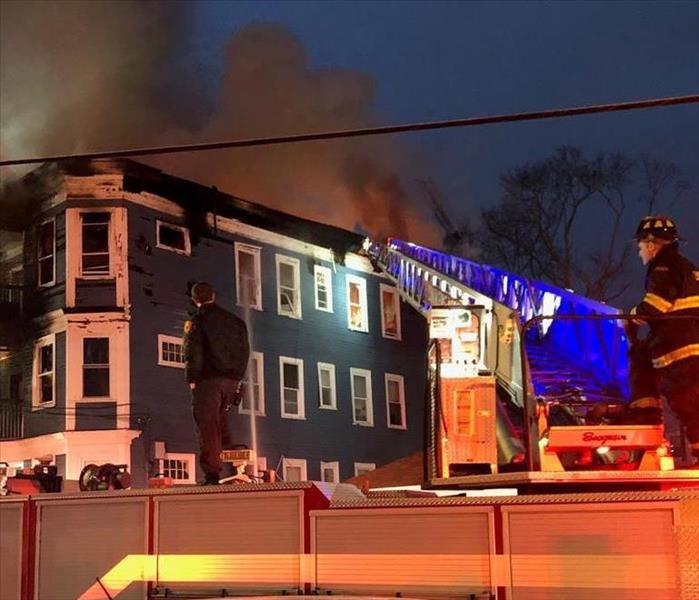Preventative Maintenance Services that reduce the threat of fires.
6/22/2023 (Permalink)
 Preventative maintenance plays a crucial role in reducing the threat of fires in residential and commercial settings.
Preventative maintenance plays a crucial role in reducing the threat of fires in residential and commercial settings.
Preventative maintenance plays a crucial role in reducing the threat of fires in residential and commercial settings. Here are some common preventative maintenance services that can help minimize the risk of fires:
Electrical System Inspections: Regular inspections of electrical systems by qualified professionals can identify potential hazards such as faulty wiring, overloaded circuits, or outdated electrical components. This helps to prevent electrical malfunctions that can lead to fires.
HVAC System Maintenance: Heating, ventilation, and air conditioning (HVAC) systems should be inspected and maintained regularly. This includes cleaning or replacing filters, ensuring proper ventilation, and addressing any issues with electrical connections or heating elements to minimize the risk of fire caused by HVAC system malfunctions.
Fire Sprinkler System Maintenance: Fire sprinkler systems are a critical component of fire safety. Regular inspections and maintenance of sprinkler systems ensure that they are in proper working order, with no clogs, leaks, or damaged parts that could hinder their effectiveness during a fire.
Fire Extinguisher Inspections and Refills: Fire extinguishers should be inspected periodically to ensure they are in proper working condition. This includes checking pressure levels, inspecting for damage or corrosion, and refilling or replacing extinguishers as needed.
Kitchen Exhaust System Cleaning: Grease buildup in commercial kitchen exhaust systems can pose a significant fire hazard. Regular cleaning and maintenance of kitchen hoods, ducts, and filters help prevent the accumulation of flammable substances and reduce the risk of fire.
Proper Storage and Handling of Combustible Materials: Establishing and enforcing proper storage protocols for flammable materials, chemicals, and hazardous substances can significantly reduce the risk of fires. This includes storing such materials in appropriate containers, away from ignition sources, and in designated storage areas with proper ventilation.
Smoke Alarm and Fire Alarm Maintenance: Smoke alarms and fire alarm systems should be tested regularly to ensure they are functional and have working batteries. This ensures early detection of fires and timely evacuation.
Employee Training and Fire Safety Education: Conducting regular fire safety training for employees helps raise awareness about fire prevention measures, evacuation procedures, and the proper use of fire safety equipment. Well-informed employees can play a vital role in preventing fires and responding appropriately in emergency situations.
It's important to consult with fire safety professionals and follow local regulations and guidelines to determine the specific preventative maintenance services required for your particular setting.






 24/7 Emergency Service
24/7 Emergency Service